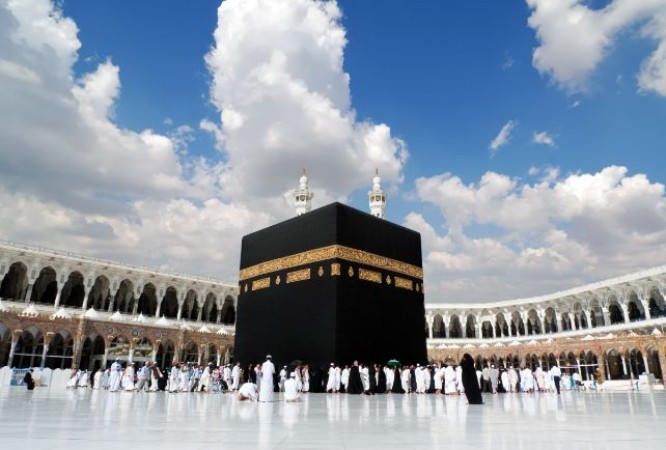
Islam, like many major religions, exhibits a rich tapestry of beliefs and practices, reflecting the diverse interpretations and cultural variations within its global community. One of the most intriguing aspects of Islamic tradition is the concept of "firka," often translated as sects or denominations. While it is commonly cited that there are 73 sects in Islam, it's important to understand that this number is based on a specific hadith attributed to the Prophet Muhammad and may not have a strict, universally accepted interpretation.
The Hadith states: "My Ummah (community) will be divided into 73 sects, all of which will be in the Hellfire except one."
The central message of this hadith is the warning about potential divisions within the Muslim community and the need for unity in adhering to the true path of Islam. It suggests that the majority of these sects will deviate from the true path.
Major Sects within Islam:
While the exact number and identification of these 73 sects remain a subject of debate, there are several major Islamic sects that have played a significant role in shaping the religious landscape of the Muslim world. Here, we explore some of these major sects, their beliefs, and their historical significance:
1. Sunni Islam:
Sunni Islam is the largest and most widely followed Islamic sect globally. Sunni Muslims comprise the majority of the Muslim population. They believe in the importance of consensus (ijma) and the traditions of the Prophet Muhammad (Hadith) as sources of religious guidance. Sunni jurisprudence is primarily based on four major schools of thought: Hanafi, Maliki, Shafi'i, and Hanbali. These schools differ in their interpretations of Islamic law (Sharia) but share core beliefs.
2. Shia Islam:
Shia Islam represents the second-largest sect within Islam. Shia Muslims, or Shias, believe that the leadership of the Muslim community (the caliphate) should have been passed down through the Prophet Muhammad's family, beginning with his cousin and son-in-law, Ali. They recognize twelve Imams as the rightful leaders (Imamate) after the Prophet, with the twelfth Imam in occultation and expected to return as the Mahdi. Shias have distinct practices and beliefs, including commemorating the martyrdom of Ali's son, Husayn, during the event of Ashura.
3. Sufism:
Sufism, also known as Islamic mysticism, is a mystical and spiritual dimension within Islam. While not a separate sect in itself, Sufism has followers within both Sunni and Shia communities. Sufis emphasize a personal and direct connection with God through prayer, meditation, and spiritual practices. They often have orders or brotherhoods led by spiritual guides (shaykhs) and seek to achieve spiritual enlightenment and closeness to God.
4. Ibadi Islam:
Ibadi Islam is a lesser-known sect primarily followed in Oman and small communities in North Africa and the Arabian Peninsula. Ibadi Muslims are known for their moderate and inclusive approach to Islam. They emphasize the importance of consensus and independent reasoning (ijtihad) in religious matters. Unlike many other sects, they have historically avoided political conflicts and have a strong focus on community harmony.
5. Ahmadiyya Islam:
The Ahmadiyya Muslim Community is a sect founded in the late 19th century in India by Mirza Ghulam Ahmad. Ahmadis believe he was a messiah and reformer. However, they are considered non-Muslims by many mainstream Islamic groups because their beliefs about the finality of prophethood differ from orthodox Islamic teachings.
6. Salafi Islam:
Salafism is a conservative and puritanical movement within Sunni Islam. Salafis aim to adhere strictly to the practices of the early Muslim community (Salaf) and reject many modern interpretations and innovations in Islam. They emphasize a literal interpretation of the Quran and Hadith.These major Islamic sects have theological and jurisprudential differences, reflecting diverse historical and cultural contexts. However, it's crucial to emphasize the shared core beliefs that unite all Muslims, such as belief in one God (Allah), the importance of the Quran as the holy book, and the essential principles of Islamic faith. Despite sectarian differences, Muslims around the world share a common bond through these fundamental beliefs and the Five Pillars of Islam, which include the declaration of faith, prayer, fasting, charity, and pilgrimage.
While divisions exist within the Muslim community, there is a shared commitment among Muslims to seek unity, understanding, and tolerance within the diverse tapestry of Islamic tradition. It is through this commitment that Muslims strive to fulfill the central message of the hadith, seeking the path of righteousness and unity in their faith.
Pitru Paksha 2023: Commemorating Ancestors - Know the Significance of Shradh Paksha
What happens to the soul after death?
The Enigmatic 700-Year-Old Lord Ganesha Statue on the Edge of an Indonesian Volcano